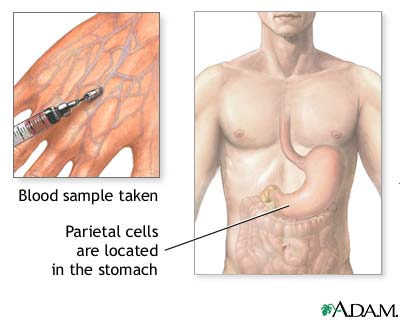 In comparison to other water-soluble vitamins, vitamin B12 is not excreted in urine, but is stored in the liver, kidney and other body tissues. Hence, it might be five to six years before a person actually develops a deficiency syndrome for vitamin B12. The general notion is that body stores do no exhaust before several years.
In comparison to other water-soluble vitamins, vitamin B12 is not excreted in urine, but is stored in the liver, kidney and other body tissues. Hence, it might be five to six years before a person actually develops a deficiency syndrome for vitamin B12. The general notion is that body stores do no exhaust before several years.
The common symptoms of vitamin B12 deficiencies are excessive tiredness, breathlessness, listlessness, pallor and poor resistance to infection. Deficiency also can lead to neurological changes such as numbness and tingling in the hands and feet. Other symptoms may include a reduced sensitivity to pain or pressure, blurred vision, abnormal gait, sore tongue, menstrual disorders and poor concentration levels.
 Rather than a dietary deficiency, a deficiency of vitamin B12 is generally associated with a malabsorption of it. In such a case, the stomach cannot produce enough of a substance called intrinsic factor (IF), which is a prerequisite for vitamin B12 absorption. Such a condition, termed pernicious anemia, is an autoimmune dysfunction, wherein the body’s immune system attacks its own tissues. Vegetarians maybe at a risk for facing deficiencies caused by dietary reasons, since the only confirmed source for vitamin B12 intake is the animal source.
Rather than a dietary deficiency, a deficiency of vitamin B12 is generally associated with a malabsorption of it. In such a case, the stomach cannot produce enough of a substance called intrinsic factor (IF), which is a prerequisite for vitamin B12 absorption. Such a condition, termed pernicious anemia, is an autoimmune dysfunction, wherein the body’s immune system attacks its own tissues. Vegetarians maybe at a risk for facing deficiencies caused by dietary reasons, since the only confirmed source for vitamin B12 intake is the animal source.
Vitamin B12 is essential for the formation of red blood cells, and a short supply of it causes anemia. A deficiency in Vitamin B12 also results in the disruption of DNA production, and as a result, abnormal cells called megaloblasts occur, leading to megaloblastic anemia.
Vitamin B12 deficiency is also linked with several neurological and psychological disorders. A lack of cobalamin results in cognitive decline, nerve degeneration and irreversible neurological damage particularly for adults above fifty. Breast-fed infants of women who follow strict vegetarian diets have very limited reserves of this vitamin, and if undetected, vitamin B12 deficiency in infants can result in permanent neurological damage. Depression, dementia and Alzheimer's disease are also caused due to a shortage of vitamin B12.
Breast-fed infants of women who follow strict vegetarian diets have very limited reserves of this vitamin, and if undetected, vitamin B12 deficiency in infants can result in permanent neurological damage. Depression, dementia and Alzheimer's disease are also caused due to a shortage of vitamin B12.
Other effects of deficiency might be asthma, AIDS, multiple sclerosis, tinnitus, diabetic neuropathy and low sperm counts. Ataxia (shaky movements and unsteady gait), muscle weakness, spasticity, incontinence, hypotension, vision problems, psychoses, and mood disturbances are the other disorders that have recently been linked to possible vitamin B12 deficiencies. Women with breast cancer tend to have lower vitamin B12 levels in their blood serum.
 The causes for vitamin B12 deficiency could be liver damage caused by excess alcohol intake, gastrectomy (i.e. the surgical removal of part or all of the stomach or removal of the ileum, a section of the intestine) and a poor functioning of the pancreas. Infection with Helicobacter pylori, a common cause of atrophic gastritis and ulcers, can also contribute to adult vitamin B12 deficiency.
The causes for vitamin B12 deficiency could be liver damage caused by excess alcohol intake, gastrectomy (i.e. the surgical removal of part or all of the stomach or removal of the ileum, a section of the intestine) and a poor functioning of the pancreas. Infection with Helicobacter pylori, a common cause of atrophic gastritis and ulcers, can also contribute to adult vitamin B12 deficiency.
Vitamins comprise only a tiny portion of the food one eats, but a lack of these essential micronutrients in one’s diet could result in serious deficiency, which if not cured could endanger one’s life.



No comments:
Post a Comment